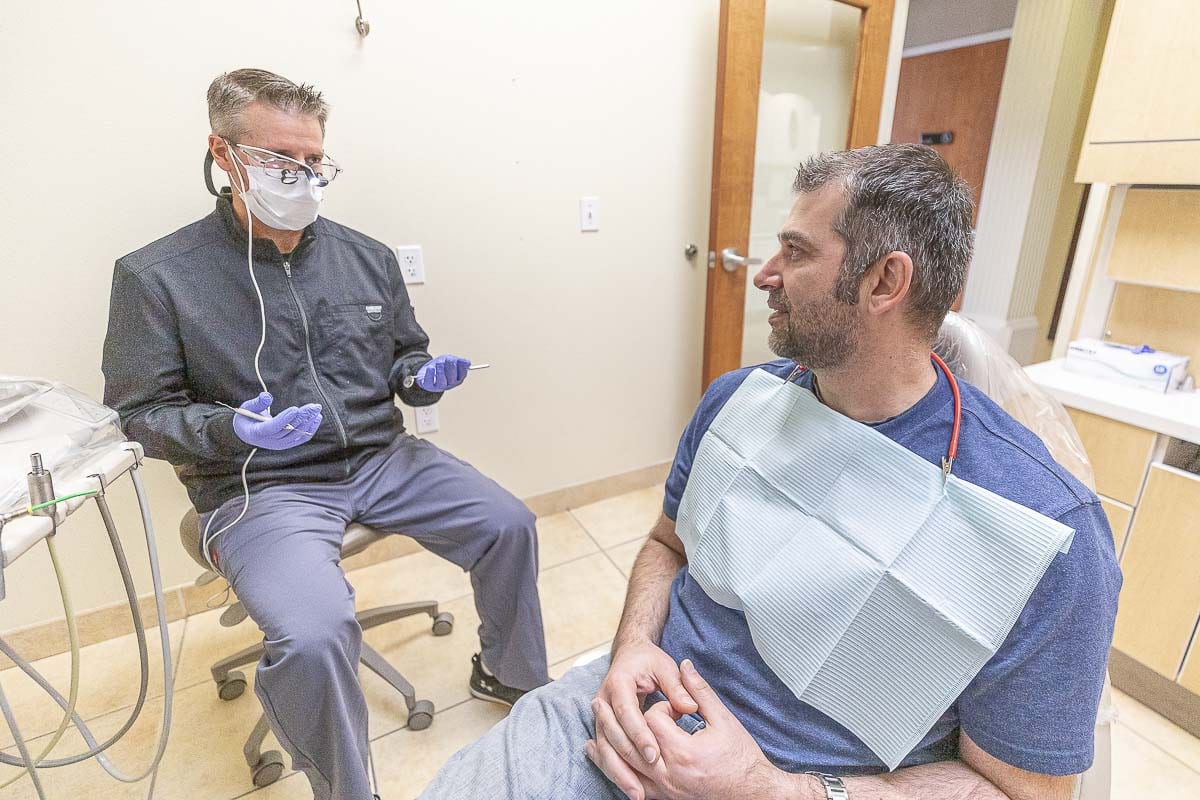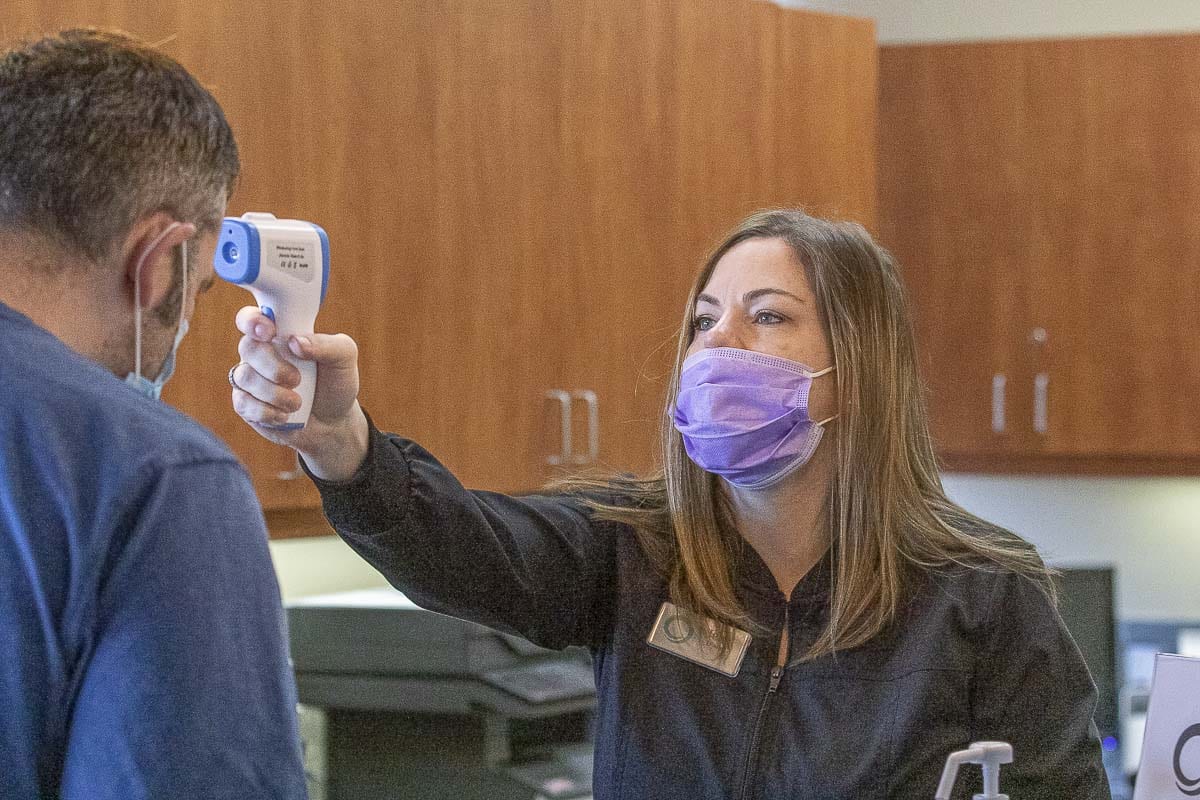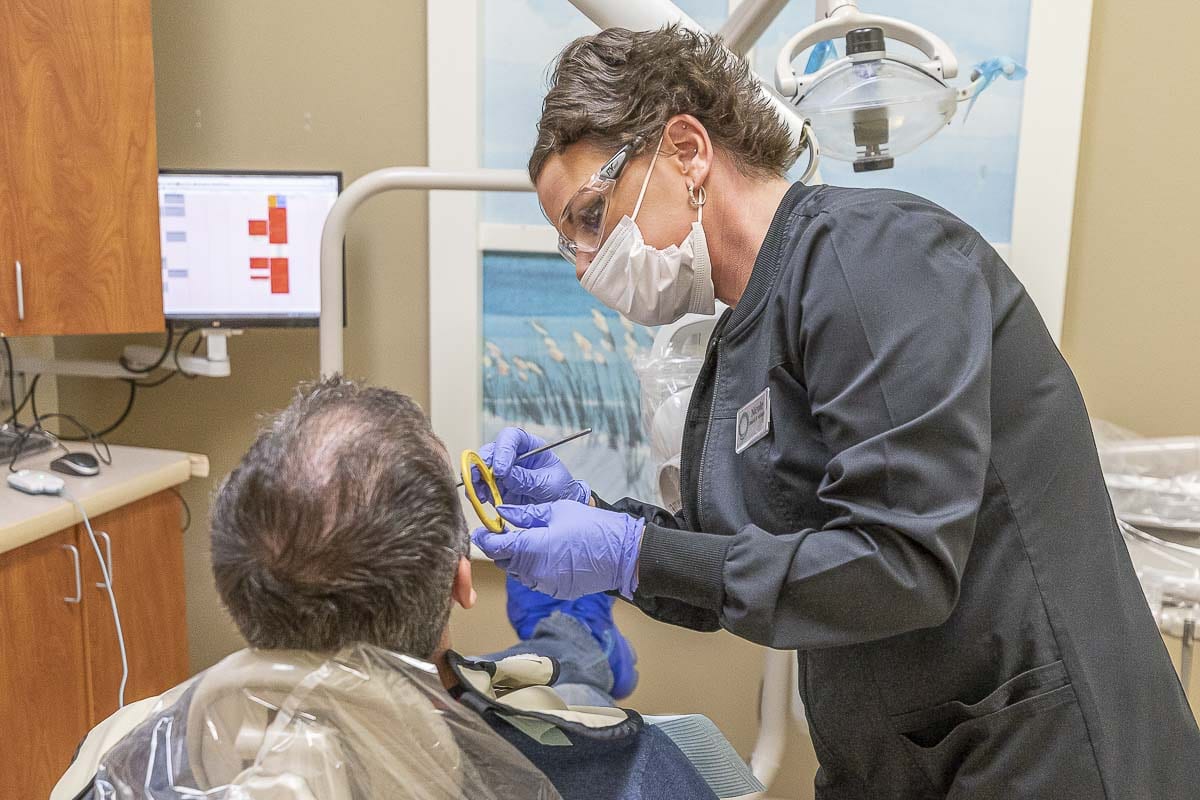Smiles Dental in Clark County remains open amid mass closures of dental offices due to COVID-19
VANCOUVER — If you have a toothache, you may be having trouble finding a dentist to help with it. According to Smiles Dental, more than 75 percent of dental offices in Washington have closed since the beginning of the pandemic.

Not to fret though, there is a solution. According to Dental Intelligence, an analytics provider, there are still dental practices open in nine Washington cities, including three in Clark County. Smiles Dental in Ridgefield, Hazel Dell and Camas is open for emergency appointments and questions.
“A memo was put out by Homeland Security in March, saying that there are some essential and critical businesses that need to stay in business during a pandemic situation like this and dentistry was listed as one,” said Dr. Raymond Frye, CEO and founder of Smiles Dental and Optima Dental Spa. “We started out by letting everybody have the opportunity who wanted to be furloughed, and who felt comfortable to stay in the office. Fortunately, we had enough that were willing to volunteer to stay in the offices and keep the majority of our offices open.”
Frye explained in a release sent out this week, that Smiles Dental has prevented 175 patients from going to the emergency room since March. He also mentioned 40 percent of those were patients new to Smiles Dental. In just the first 10 days of the statewide restrictions, nearly 50 people were treated in Clark County by Smiles, for a toothache or emergency issue.

Keeping dental patients out of the emergency room is incredibly important right now, Frye said. In April alone, Smiles is executing to treat 1,000 patients that otherwise would have been forced to go to the hospital. In the combined regulations set forth by the Washington state and federal government, treatment of only urgent and emergent dental issues are permitted right now.
Frye explained that emergent issues are fairly obvious. Waking up in the morning with a throbbing tooth and heading to the dental office, or having extreme pain would be emergent, he said.
“The confusion I’ve seen as the CEO and as a dentist provider myself, is the gray area of what is urgent care,” Frye said. “As our industry we’ve had to have a conversation about what urgent care is. The American Dental Association came out with their guidelines, and we’re subscribing to their guidelines, which seemed very reasonable.”
“Basically, any problem that you’re experiencing or that we see as your provider that we feel or you feel in the next 90 days if it were to go untreated could turn into a real emergent situation either become very painful, or just become a lot more intense of a procedure if it were to be delayed [is urgent],” he said.
As an example, Frye said looking into your mouth and seeing a large hole in your tooth, perhaps a past root canal that is in need of a crown, would classify as urgent. Even if such a malady was not hurting you yet, Frye said, within 90 days such a condition would likely worsen to emergent status.
Smiles currently has a consultation phone number on which people can ask questions and get advice on whether their concern may be emergent, urgent or can wait. To reach this line call (888)-552-6957.
“If you’re having a situation you’re dealing with dentally, and you’re trying to mitigate and calculate the risk factor going in or staying in, you can call us,” Frye said. “We’ll do some triage, some questions that will determine in our professional opinion if you’re okay to wait until the ‘Shelter In’ is lifted or if we feel like you should come in.”

Smile Dental offices everywhere have also stepped up their level of cleaning and precautions. If you visit, you will have your temperature taken before your appointment. The waiting area is also cleaned continually and has less commonly touched objects in it, such as magazines.
With many of their patients without insurance, Smiles Dental is currently offering a low flat rate of less than $50 for anyone who needs care but does not have health insurance.
In addition to discounted rates, Smiles is also aiding their fellow healthcare workers at local hospitals and medical offices by donating their extra personal protective equipment (PPE) and medical masks. Frye explained that their office stocked up on the PPE supplies prior to the virus arriving in the U.S. and now have an overabundance.
“We’re very fortunate that we kind of saw this coming and we had more than sufficient supply to maintain our normal operations for the next six months,” Frye said. “Because our employees are part of the communities that they live in, a lot of them have spouses or friends or family that work in other medical care facilities where there’s a greater need. They’ve been taking this excess of PPEs we have and personally delivering them to different emergency rooms.”
Smiles has donated tens of thousands of surgical masks to date.
For more information on dental offices that remain open for urgent and emergent care, as well as treatment options from Smiles Dental, visit them online.




